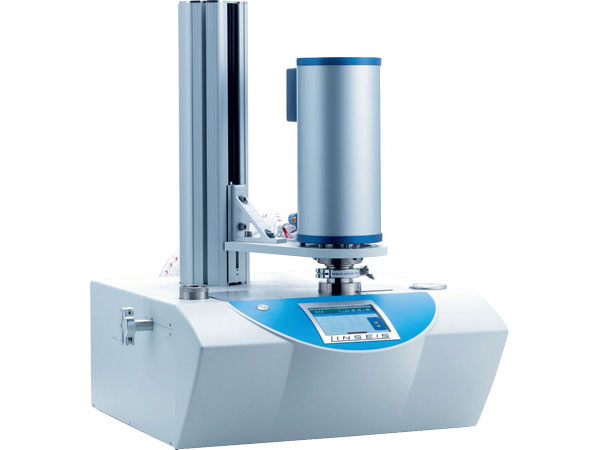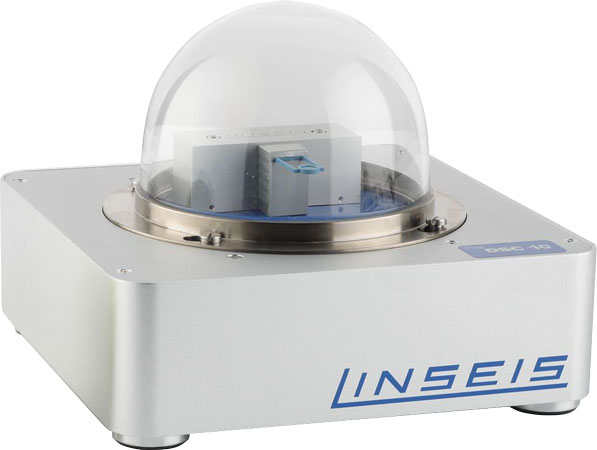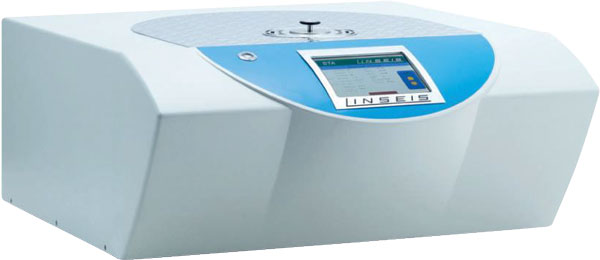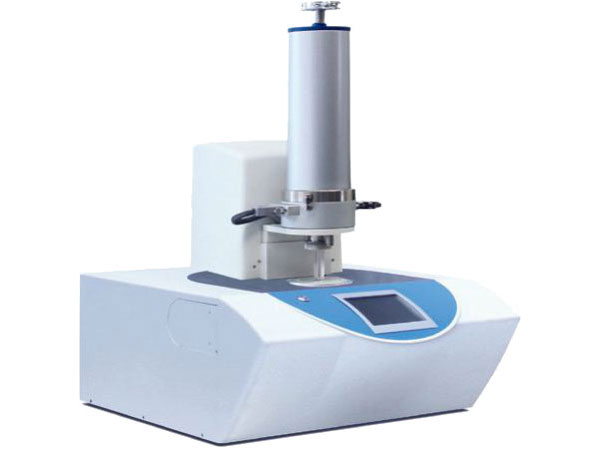Thermal analysis is a valuable testing method employed to assess the physical and chemical attributes of various materials. Linseis offers an extensive array of thermal analysis instruments designed to explore the characteristics of materials under specific temperature-related conditions. inseis, a renowned manufacturer of thermal analysis instruments, offers a comprehensive range of specialized series to cater to various research and industrial needs. Here's a brief overview of each of these Linseis thermal analyzers:
Linseis TGA-Series (Thermogravimetric Analysis):
The Linseis TGA-Series instruments are designed for Thermogravimetric Analysis, which measures the change in weight of a material as a function of temperature. These instruments are used to analyze processes involving mass loss or gain, such as decomposition, oxidation, and sublimation. TGA is valuable for studying material composition and degradation.

Linseis DSC-Series (Differential Scanning Calorimetry):
The Linseis DSC-Series instruments are Differential Scanning Calorimeters. DSC measures the heat flow into or out of a sample as it undergoes physical or chemical transformations. It is widely used in characterizing phase transitions, crystallinity, and thermal behavior of materials.

Linseis STA-Series (Simultaneous Thermal Analysis):
The Linseis STA-Series combines multiple thermal analysis techniques into a single instrument, allowing for simultaneous measurement of mass and heat flow changes. This is particularly useful for comprehensive investigations of complex processes involving both thermal and chemical changes.

Linseis DTA-Series (Differential Thermal Analysis):
Linseis DTA-Series instruments focus on Differential Thermal Analysis, which measures temperature differences between a sample and a reference material as they are both subjected to the same heating program. DTA is vital for examining phase transitions, chemical reactions, and material purity.

Linseis TMA-Series (Thermomechanical Analysis):
The Linseis TMA-Series instruments are used for Thermomechanical Analysis. TMA measures changes in a material's dimensions (e.g., expansion or contraction) as a function of temperature. It is valuable for assessing materials' mechanical properties, softening points, and dimensional stability.

Linseis GSA-Series (Gas Sorption Analyzers):
Linseis GSA-Series instruments are Gas Sorption Analyzers, designed for investigating materials' gas sorption and desorption characteristics. These instruments are essential for understanding the porosity, surface area, and gas storage capacity of materials, which is crucial in fields like catalysis and materials science.

Each of these Linseis thermal analysis instruments offers specialized capabilities to cater to distinct analytical needs, enabling researchers and industries to gain valuable insights into the thermal and material properties of a wide range of substances. These tools are indispensable for quality control, product development, and scientific research in various fields, including chemistry, materials science, pharmaceuticals, and more.
These thermal analysis tools find applications across a wide spectrum of scientific processes. For instance, they can be employed to quantify heat flow within a system or track weight fluctuations of materials under predefined environmental conditions. Additionally, they prove instrumental in conducting gas analysis and determining the mechanical properties of materials in relation to variables like temperature, time, and the surrounding atmosphere. These devices serve pivotal roles in the pharmaceutical sector, where they play a crucial role in assessing drug characteristics. Furthermore, they are invaluable in various other industries for characterizing items such as food and biological products, organic chemicals, and inorganic materials. The diverse range of applications they serve renders them indispensable in sectors where precision in measurements is of utmost importance.